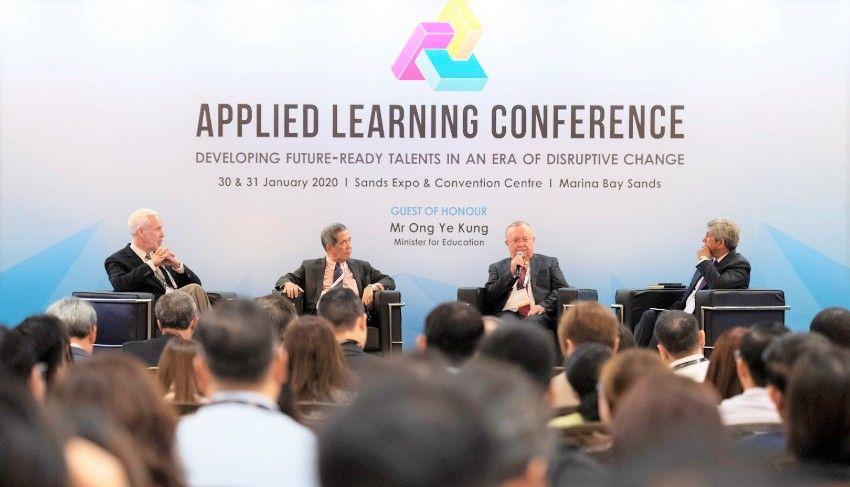How can universities stay relevant in a disrupted world?
By Singapore Institute of Technology
The Singapore Institute of Technology is integrating work and study to prepare students for the future workforce.

They turned to the university Duale Hochschule Baden-Wurttemberg Mannheim (DHBW Mannheim) and designed a cybersecurity course to suit their needs. Just 18 months later, university students were helping to fill the gap, shared Professor Dr Georg Nagler, Rector of DHBW Mannheim.
This integration of work and study is the future of education, believes Professor Tan Thiam Soon, President of Singapore Institute of Technology (SIT). At the recent Applied Learning Conference organised by SIT, he shared how applied learning can prepare students for a disrupted workforce.
Guarding against disruption
SIT recognises that technological disruption in the workforce is inevitable. It had to fight the age-old conventions of universities to help students stay relevant. “How can we transform to adapt to this new reality?” asked Prof Tan.
The answer for SIT was ‘applied learning’, a model which allows students to spend part of their curriculum time in industry placements. There are two ways it hopes to address workforce disruption with this model.
First, applied learning makes education more inclusive. Students, no matter their academic performance, can learn the skills needed to prepare them for the workforce. “Education can no longer be just reserved for the brightest,” said Prof Tan. “We want to build a society where no one is left behind.”
Second, the focus on work-study integration helps students understand the importance of learning throughout their working lives. “It is very powerful to get students used to the idea that life is going to be a work-learn continuum,” Prof Tan noted. “This will be the start to a lifetime of working and learning together. Not separately, not in sequence.”
Why applied learning helps
Work placements have proven useful for companies in seeking potential hires. Students are treated as full-time staff during their placement - which can last up to a year - and have to work on solving real industry problems. “Today, 70 percent of them have received job offers from the company they were attached to,” shared Prof Tan.
Supervisors at the company can also learn training skills that would be useful for reskilling the rest of the staff. SIT works closely with supervisors to ensure that they are well-equipped to guide students on their learning journey. Through this mentoring process, the company can build up a ready pool of staff who are trained to do internal reskilling.
SIT also found that students who went through a work-study pathway became a lot more confident after the job placement. “That is a huge game-changer,” declared Prof Tan. “When students discover their confidence and know they can hold their own, in spite of all kinds of labels being put on them, they can really do wonderful things.”
What universities need to do
For this approach to work, higher learning institutions will need to prioritise the skills students need at the workplace. “We need to think about making that learning directly relevant to the employee, directly useful to the company,” said Prof Tan.
One way professors can teach more relevant skills is to gain work experience themselves. SIT has a squad of teaching staff with both academic accolades and industry experience. This team, known as professional officers, oversees students in their placements and supports their learning in the company.
Professors should also work in tandem with companies to understand industry needs and customer demand. DHBW Mannheim has taken the lead in this, viewing employees almost as additional members of the teaching staff. “All companies that educate students with us are members of the university,” Prof Dr Nagler declared.
Deans, not just the teaching staff, need to get in on the action as well. Dr Paul LeBlanc, President of the Southern New Hampshire University, highlighted the importance of becoming “conversant” in technology, no matter how high up the academic ladder you may be. “You have to be conversant and then know to hire really good people who are better than you,” he said.
For the German army, this approach has helped adapt to a rapidly changing world. With applied learning, SIT aims to ensure that Singapore stays one step ahead amidst the disruptions.